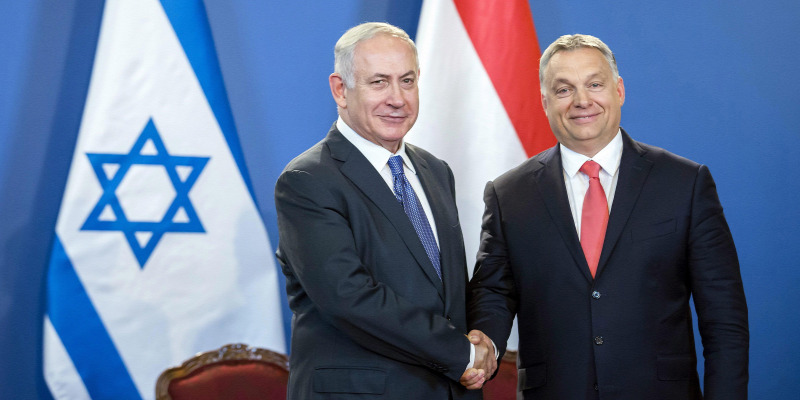Hungary vetoed the European Union's majority position on the rocket attacks against Israel, and this, according to Mr. Laschet, the candidate for the post of German chancellor, is another reason why the European Union's foreign policy needs to be switched from unanimous to majority decision-making. Today, joint foreign policy decisions can only be made unanimously, and Laschet wants the majority to be able to impose its will on the minority in the future. All this in the name of Europeanness.
According to the treaties of the union, full agreement is required on the most important issues, including foreign policy. Hungary therefore acted in accordance with the basic treaty when it vetoed. Accusing Hungary of being un-European because it exercised its rights guaranteed in the treaty is in fact profoundly un-European, Orbán wrote in his article entitled Viktor Szamizdad 8.
The states of the Franco-German axis are known to have many millions of Muslim citizens, whose opinions cannot be neglected in a democracy. But it must also be taken into account that only a small number of such citizens live in Central Europe, in the area of the Visegrád Four - thus also in Hungary.
We also see that the majority of Western European countries have entered the era of a post-national and post-Christian way of life , he added.
But it cannot be ignored that we still live our lives according to Judeo-Christian values, culture and outlook on life. Therefore, it is natural for us that it is not possible to equate a state, Israel, with an organization placed on the EU sanctions list. Not even if President Laschet, on behalf of the Franco-German axis, sees this as the correct EU foreign policy. It would be time to finally acknowledge that the Central European countries that joined later are equal members of the European Union community. We also have the right to stand up for our beliefs, our foreign policy allies and our own interests.
On Tuesday, the European Union called for a cease-fire and an immediate end to violence between the Israelis and the Palestinians, as well as the provision of humanitarian access to the Gaza Strip, after an extraordinary meeting of EU member states' foreign ministers held via video link. Josep Borell, the High Representative of the European Union for Foreign Affairs and Security Policy, justified the need for the extraordinary meeting by establishing a common EU position. In response to a question, he said: among the member states, only Hungary did not support the EU's position.
Gergely Gulyás said at Thursday's government briefing: according to the government's point of view, Israel has the right to self-defense , and it considers it unacceptable that a statement be made in which the State of Israel and Hamas are treated on the same level.
Hungarian foreign policy reserves the right to express its opinion in each joint resolution , he added.
Tensions between Gaza's Islamist organizations and Israel renewed in mid-April after Jewish settlers attempted to evict protesting Palestinian families from their homes in eastern Jerusalem. The fact that Israeli police took action at the Al-Aqsa Mosque increased the tension.
The Islamist organization Hamas started attacking Israel with rockets last Monday, and this triggered the Israeli counterstrikes. Israel has attacked hundreds of targets in the Gaza Strip, home to about two million Palestinians, with warplanes and artillery.
Since the fighting began on May 10, according to Gaza health officials, 232 Palestinians, including 65 children, have been killed and more than 1,900 wounded in Israeli bombings. Israel claims to have killed at least 160 fighters in Gaza. Authorities in Israel reported 12 deaths and hundreds of people being treated for injuries from the rocket attacks.
MTI
Cover image: Illustration: Israel's Benjámin Netanyahu (b) and Hungarian Prime Minister Viktor Orbán shake hands at the press conference held in the Parliament in Budapest on July 18, 2017. MTI Photo: Balázs Mohai












